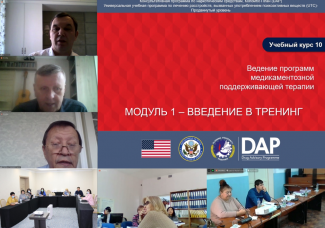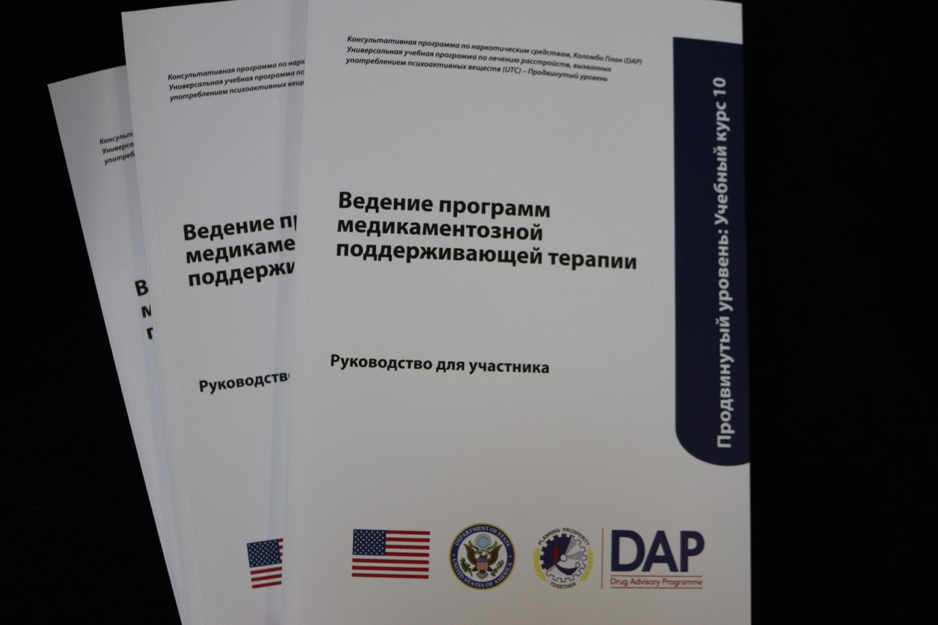National trainer teams from Central Asia level up in the Universal Treatment Curriculum for Substance Use Disorders with support from UNODC

Online regional training for trainers (ToT) on Course 10 “Managing Medication-Assisted Treatment Programs” (30 November – 3 December 2020) of the Advanced Level of the Universal Treatment Curriculum for Substance Use Disorders (UTC training package) launched on 30 November 2020.
The main purpose of the training series is to prepare the team of national trainers who will be able to independently train professionals, working in the field of drug dependence treatment and prevention in their own countries in the future. The training was conducted by Dr. Yuriy Rossinskiy (Kazakhstan) and Dr. Oleg Yussopov (Kazakhstan), highly qualified Regional Master Trainers of the International Center for Credentialing and Education of Addiction Professionals.
The participants of the regional training were practicing addiction professionals and members of national teams of trainers from Kyrgyz Republic (9 participants), Tajikistan (5 participants) and Uzbekistan (10 participants), who hold credentials of International Certified Addiction Professionals Level One (ICAP I).
In his opening speech, Borikhan Shaumarov, UNODC Regional Program Coordinator talked on the importance of UTC training package and called on to the participants inviting them to start conducting workshops for addiction professionals in their home countries to pass on the knowledge. He also encouraged them to join the International Society of Substance Use Professionals (ISSUP) to expand their own horizons of professional knowledge sharing.
The main objectives of the training were to provide a comprehensive understanding of the role of pharmacotherapy and pharmacological interventions on a continuum of recovery-oriented interventions and to present ways of integrating medication-assisted treatment (MAT) services into a comprehensive system of care (e.g., program setting, management issues).

For four days regional master trainers informed the participants on the role of pharmacotherapy on a continuum of recovery-oriented interventions and systems of care, identify the phases of care involved in all Medication-Assisted Treatment (MAT) programs, explain the psychosocial benefits of MAT and describe specific types of pharmacological interventions.
This training was organized within the framework of UNODC global project GLOJ71 “Treating drug dependence and its health consequences: Treatnet II” in collaboration with Prevention, Treatment and Rehabilitation Section of UNODC HQ with financial support from U.S. Department of State’s Bureau of International Narcotics and Law Enforcement Affairs.
